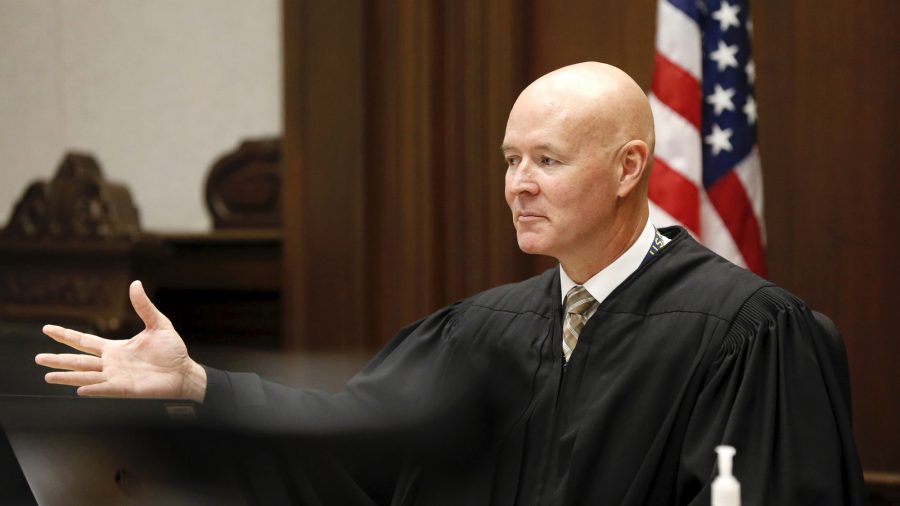An Iowa judge ordered a local county auditor to invalidate 50,000 absentee ballot requests, agreeing with a Trump campaign argument that a local elections commissioner broke the law by pre-filling the applications with voters’ personal information.
Judge Ian Thornhill ordered Linn County Auditor Joel Miller (D) to notify the affected voters in writing that their absentee ballot requests cannot be processed because they should not have been pre-filled with their personal information. The impacted voters would have to fill out new requests or vote in person on Election Day. Miller said he would comply with the order and send new blank forms to the voters in September.
The Trump campaign filed similar challenges to other counties in Iowa.
The Democrats and Republicans are waging an extensive legal battle across the nation that will shape the rules of the 2020 election. Democratic presidential nominee Joe Biden has said that his campaign has retained more than 600 lawyers for the effort.
Democrats called Thornhill’s decision an act of voter suppression. Republicans said the ruling would enhance voting security and hold a “rogue auditor” accountable.
Miller in July sent 140,000 absentee ballot request forms to voters pre-filled with their personal information, including their names, dates of birth, and voter identification numbers. Miller has said his intention was to make it easier to vote amid the pandemic.
The judge ruled that Miller’s move violated an order from Iowa Secretary of State Paul Pate, who told county officials in July that the absentee ballot request forms mailed to voters must be blank to ensure uniformity.
The voters signed and returned 50,000 of the forms. The state will begin to send out absentee ballots on Oct. 5.
Absentee voting resulted in record turnout in the Iowa primary in June. Iowa is one of 16 toss-up states in the 2020 election, according to a tally maintained by Real Clear Politics.
Weeks after the primary, the state’s Republican-controlled legislature passed a law blocking county auditors from filling in voters’ four-digit voting identification numbers, which few know and are routinely left blank on the forms.
Instead, the law requires auditors to contact voters by email or mail to have them correct mistakes themselves. Supporters argued that requiring voters to fill out their forms was a step to make absentee ballots more secure.
Miller and elections commissioners in Johnson and Woodbury counties said contacting voters who leave the information blank would have been too burdensome and potentially disenfranchised people, so they mailed forms with that information already filled in. They contended that the law did not block them from doing so.
Trump’s campaign and state and national Republican Party groups filed lawsuits against the three counties, seeking to invalidate all forms returned in response to the mailings. They warned that any ballots cast in response to the mailings could be challenged later.
Thornhill’s ruling, issued after he heard arguments Thursday, is the first so far. Another hearing is set for Friday in Woodbury County, where 14,000 of the absentee ballot requests have been returned. A hearing in the Democratic stronghold of Johnson County, where thousands more have been returned, is planned for next week.
Thornhill was appointed by Democratic Gov. Chet Culver in 2009.

The secretary of state has alleged that the mailing violated a law intended to protect the personal information stored in government and corporate databases, and asked prosecutors to investigate.
It argues that Miller had no legitimate purpose to access voters’ identification numbers and share them with a vendor that processed the mailing. Attorney general’s office spokesman Lynn Hicks said the office hasn’t decided whether to open an investigation.
Assistant Linn County attorney warned that an injunction would hurt voters who are expecting to receive absentee ballots and taxpayers who would be forced to pay for additional notifications to be sent.
The Associated Press contributed to this report.


